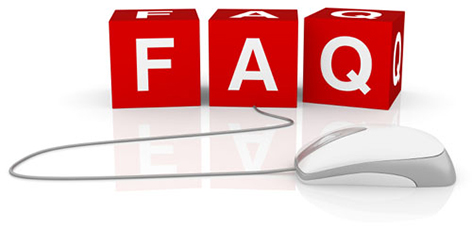
Frequently Asked Questions About Reverse Mortgages
What is a reverse mortgage?
A reverse mortgage is a loan that allows you to convert a portion of your home equity into income. When you enter into a reverse mortgage, you can choose to receive a single large payment, smaller payments every month, or a line of credit. Under a reverse mortgage, you will not have to make any loan payments until the home is sold, the borrower dies, or the home is no longer used as a primary residence.
What does HECM stand for?
HECM stands for Home Equity Conversion Mortgage. An HECM purchase is a loan regulated and insured by the Federal Housing Authority. Because it is government insured, your home will be protected even if your lender goes out of business or if your loan exceeds the value of your home. The loan will not have to be repaid until the house is sold, the owner dies, or the owner no longer uses the house as his primary residence.
How do I qualify for a reverse mortgage?
To qualify for an HECM reverse mortgage:
- You (and your spouse) must be at least 62 years of age.
- You must own your home outright or have substantial equity in your home.
- Your home must be your primary residence.
- Eligible properties include 1-4 unit homes as well as manufactured homes and condominiums that meet FHA requirements.
The home is used to secure the mortgage, so no credit check is necessary.
How much cash will I get and how will I be paid?
In order to determine how much cash you will receive, you will need to contact a lender and inquire about their reverse mortgage programs. The amount of the reverse mortgage will depend:
- On the youngest borrower’s age
- The current interest rate
- The lesser of the appraised value or the HECM FHA mortgage limit of $625,500
- Initial Mortgage Insurance Premium
You can choose to be paid by a single large payment, smaller payments every month, a line of credit, or a combination of those options. Try our Reverse Mortgage Calculator for estimated earnings!
Can I lose my home?
HECM reverse mortgages are federally insured, so that even if your loan becomes greater than your property value, you will not lose your home. As long as you continue to pay property taxes and hazard insurance, you will be able to live in your home.
What happens to my debt?
As long as you are living in the home, you will not be required to make any payments on the loan. Once the home is no longer your primary residence, you have sold the home, or you have died, the loan will become due. Once the loan is due you or your heirs will have to either pay the loan or sell the property. Proceeds of the sale will go towards the balance of the loan, but all remaining equity will go to you or your heirs.
What happens with a reverse mortgage after death?
After death the loan will become due. Your heirs will have to sell the home and use the proceeds to pay the balance of the loan. If there is remaining equity, this will go to your heirs once the loan is paid. Under no circumstances will any additional debt be passed onto heirs. If your heirs wish to keep the property, they will have to pay the amount of the loan.
Will the home be passed on to my heirs?
If your heirs wish to keep the home, they will have to pay the amount of the loan. Otherwise, they will have to sell the home and offer the proceeds to the lender. If there is any remaining equity, the heirs will receive it once the balance of the loan has been paid.
What is the difference between a reverse mortgage and a home equity loan?
When taking out a home equity loan or taking out a second mortgage, you are expected to make monthly loan payments on the principal as well as the interest. With a reverse mortgage, you will receive payments every month and will not have to make any payments on the principal or interest until you sell the home or no longer live there.
Why should I get a reverse mortgage?
A reverse mortgage is a great option if you are looking for additional monthly income. An HECM reverse mortgage is government-insured, so you are protected against losing your home and you will be able to live there as long as you continue to pay property taxes and hazard insurance.
By finding the right loan program and the right lender, you will be able to structure your reverse mortgage to meet your specific financial needs.







